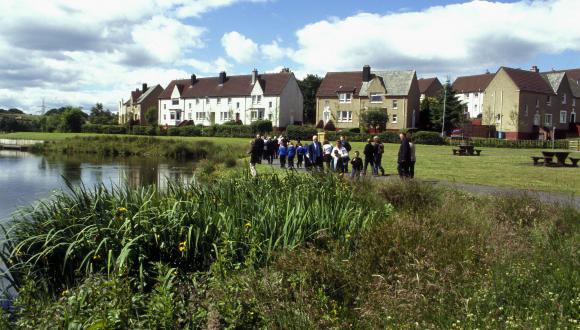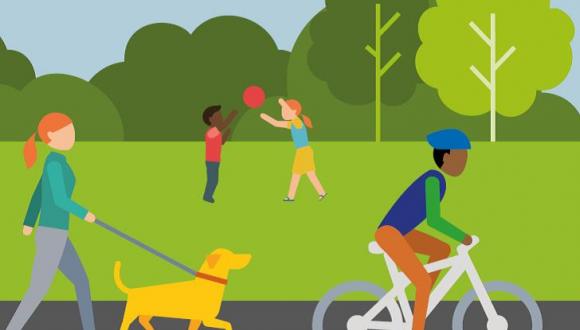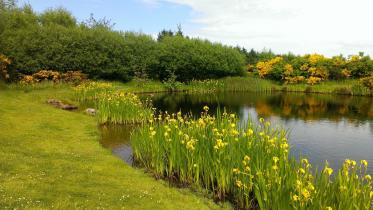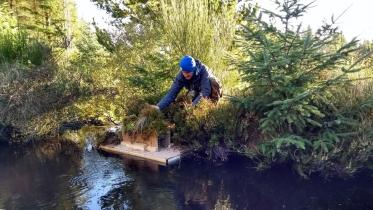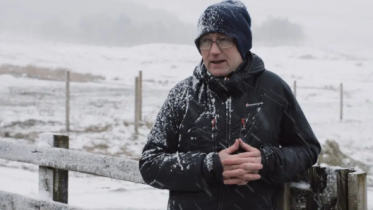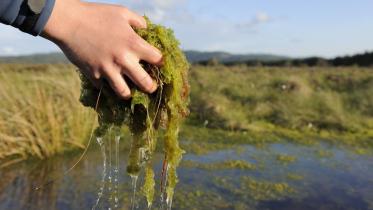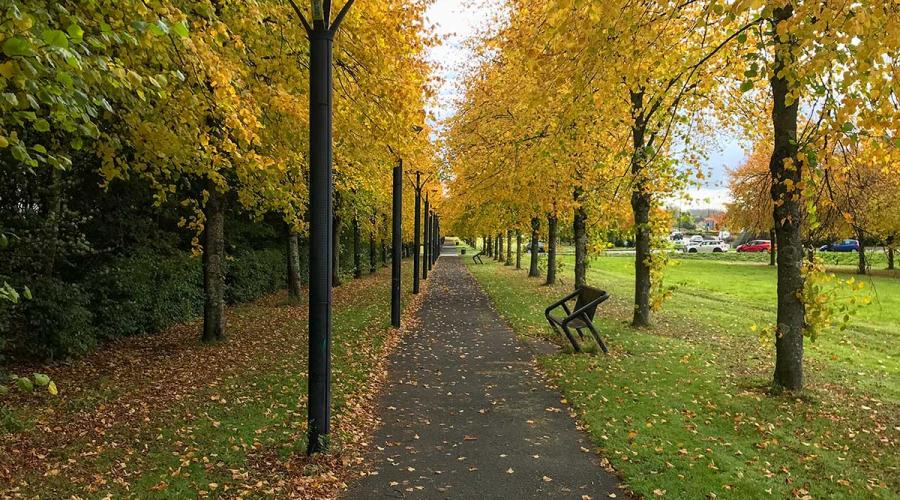
Lanarkshire Green Health Partnership – Year 3 Report 2021
Executive Summary
Introduction: Pandemics, Ponds, People and Puddles…
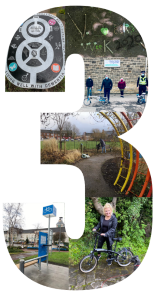
It has been a year like no other due to the impact and scale of COVID-19. However, the paradigm is that nature and being outdoors have never been so important to help people to cope, maintain wellbeing and stay connected to their community. The Lanarkshire Green Health Partnership (LGHP) has continued to ensure outdoor activities are promoted, valued and integrated into how we provide health and care services and are proud to report their achievements in this year 3 report.
The context this year is certainly very different to previous work, and we now have a new oversight body (Public Health Scotland (PHS)) to help identify priorities for our population as outlined in the strategic plan. It provides our Green Health Partnership with clear priorities to contribute to, supporting the greatest improvement in those communities with the worst outcomes. We recognise that responsibility for improving Scotland’s health through access to nature is best achieved in partnership, making the whole more than the sum of its parts. Our Chief Medical Officer felt that green space was so important to health and wellbeing that he made green and sustainable healthcare one of his five key themes this year, specifically mentioning Green Health Partnerships, Lanarkshire’s Community Growing Initiative, and its role in recovery from the pandemic.
Scottish Government restrictions to protect the population from the further transmission of COVID-19 meant that almost all group activities in Lanarkshire e.g. Branching Out, community garden groups and the majority of patient-focused nature interventions could not continue; however creative, flexible and digital solutions were devised and implemented at every stage of the year by partners and their volunteers. Everyday access to nature has become vital to supporting passive and active forms of engagement with the outdoors but this has also highlighted inequalities in access to quality green space in our most deprived areas and for those people living without a garden in their homes. Ways in which the LGHP in 2020-21 has managed to build capacity and profile include:
- Embedding green health within the Lanarkshire Weight Management Service
- Recruiting a new team leader for green health & weight management and a Health Improvement Senior specifically for active travel
- Working with Sustrans to host a workplace engagement officer for active travel
- Achieving £323,000 in active travel capital investment; with both Hairmyres and Wishaw hospitals awarded cycle-friendly status
- Collecting 70 bikes from a bike amnesty in collaboration with North Lanarkshire’s Restorative Justice Team and recognised by Scottish Parliament
- Securing a permanent contract through Voluntary Action South Lanarkshire for the current green health volunteering development officer and provision of a funding contribution to Voluntary Action North Lanarkshire to recruit an equivalent post
- Receiving NHS endowment funding for a 2 year period for the community hospital growing programme delivered by CCI
- Disseminating a booklet titled 19 Ways to Stay Connected with Nature during Covid-19
- Launching the Get Outdoors Lanarkshire website
Reflections and Next Steps
A quick count of the various organisations and services mentioned comes to an incredible 62, which does not include all the links that have been developed over the partnership’s first three years. In the interests of brevity, not everyone could be name-checked, but the examples included demonstrate the breadth and depth of partnership working that have been critical to our success. People of all ages and abilities, living across the whole of North and South Lanarkshire have engaged with green health activities, sometimes venturing into new territory and hopefully developing new habits. From gardening to peer support, from new bikes to walking groups, from helping to create new green spaces to enjoying visits to others that have been available for years, Lanarkshire has embraced the green health opportunities we’ve been able to offer and build upon. We have evidence of contributions to all of the outcomes set for Years 2-3, including improved physical and mental health, weight management, social connections and levels of participation in green health opportunities. Case studies have been selected to complement each of the chapters and to allow the reader to get a true sense of the impact of the work on individuals and their families.
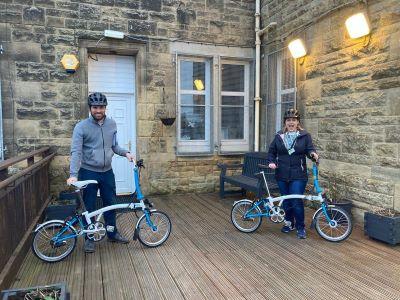
Our success is not just about quantity, though, as our range of case studies demonstrates. We have heard how community food growing, acquiring bikes, and Shotts community initiatives have all improved people’s health and wellbeing, in particular, increasing self-esteem and gaining a ‘sense of purpose’ for individual participants. A health walk leader increased their socialisation, while a whole family rode bikes to explore their local area without the need for public transport. People with a high body mass index were able to continue supported physical activity during the pandemic when leisure facilities were closed, which also overcame perceived barriers to exercising outdoors. A few passers-by even shared personal experiences that helped to boost participant motivation. Green health opportunities were also shown to be critical for Lanarkshire staff this past year as peer support from health improvement colleagues encouraged them to venture outdoors to improve their sleep, lower stress, and generally enhance wellbeing.
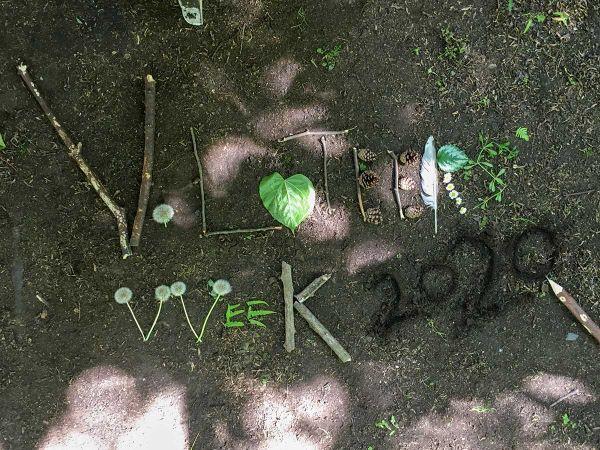
The impact of COVID-19 on Lanarkshire’s Green Health Partnership has been both positive and negative. There is no doubt that much more of what was planned for Year 3 would have been completed in the absence of the pandemic, yet it has also led people to be creative in finding solutions in the face of closures and lockdowns. It is too early to say where the balance lies, but the benefits of being outside were obvious to the whole country, and a welcome inclusion in national guidance to promote good mental health and wellbeing.
Much of what has been achieved has improved the quality of green space available to the residents of Lanarkshire. Not everything that was planned has been progressed as yet, but those that have not simply await the right conditions. Our Green Health Partnership has been able to support a range of initiatives that have improved the local environment for many people and contributed to Lanarkshire’s sustainability goals.
In addition to the wide range of evidence presented in this report, key stakeholders have endorsed the Green Health Partnership’s achievements, sometimes in the background, raising awareness or promoting joint working, but also in creating bespoke posts that will sustain the good work started. The Project Manager post being permanent will enable a wide range of work to continue, much in collaboration with our weight management team. The Volunteer Development roles will now be taken forward by both of our third sector interface organisations (Voluntary Action North Lanarkshire and South Lanarkshire) to ensure concrete links are made to maximise green health opportunities into the future.
Some stakeholders cautioned us not to forget issues around ongoing funding and organisational responsibility to promote green health awareness and work in partnership with others. However, the consensus was that the future of Lanarkshire’s Green Health partnership was bright and widely expected to continue to shine sustainably, well beyond the COVID-19 pandemic.
NatureScot acknowledges the work of the LGHP in this statement:
Green health partnerships are a central pillar of the Natural Health Service programme which is seeking a step-change in Scotland in the use of nature-based solutions to deliver a range of public health outcomes. Lanarkshire is the longest established of the four current partnerships and as this report makes clear has delivered an exciting, innovative and locally tailored programme of work over the last 3 years to encourage greater use of green health activity to tackle local health priorities. The importance of nature-based solutions such as this for the health of both people and the planet has increased during the pandemic and is set to be a key element of the green recovery we now need to see in Scotland.
Marie McKeown, Lanarkshire Weight Management Service & Green Health Partnership Manager or Vicki Trim, Senior Health Improvement Manager.
We would like to take this opportunity to extend thanks and appreciation to all members of the LGHP and for the national funding that we received to grow this small seed into a flourishing partnership!

